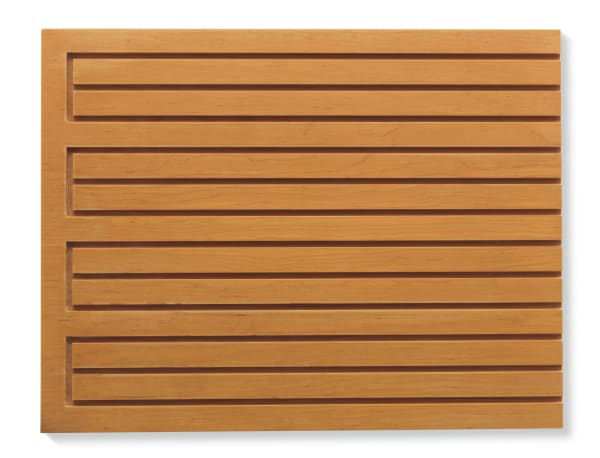Donald Judd AMERICAN, 1928-1994
Donald Judd’s sculptures and installations helped pioneer mid-20th-century Minimalism. His wall-mounted “stacks,” shelf-like structures, and freestanding multicolored works were made from commercial materials and fabricated in factories. This process complicated traditional ideas about sculpture and fine art, undermining notions of individual authorship, the importance of the artist’s “hand,” and distinctions between art, architecture, and design. Judd studied philosophy and art history at Columbia University and took painting classes at the Art Students League of New York. He worked as an art critic and writer throughout his career and, in 1965, penned “Specific Objects,” a seminal essay on Minimalist art. His work belongs in the collections of countless museums, including Kunstmuseum Basel, the Metropolitan Museum of Art, the Museum of Modern Art, the Guggenheim Museum, the S.M.A.K. Museum of Contemporary Art, the Tate, and the Tokyo Metropolitan Art Museum, among others. Judd is also well known for his outdoor, site-specific installations in the town of Marfa, Texas. His work has sold for eight figures on the secondary market.

